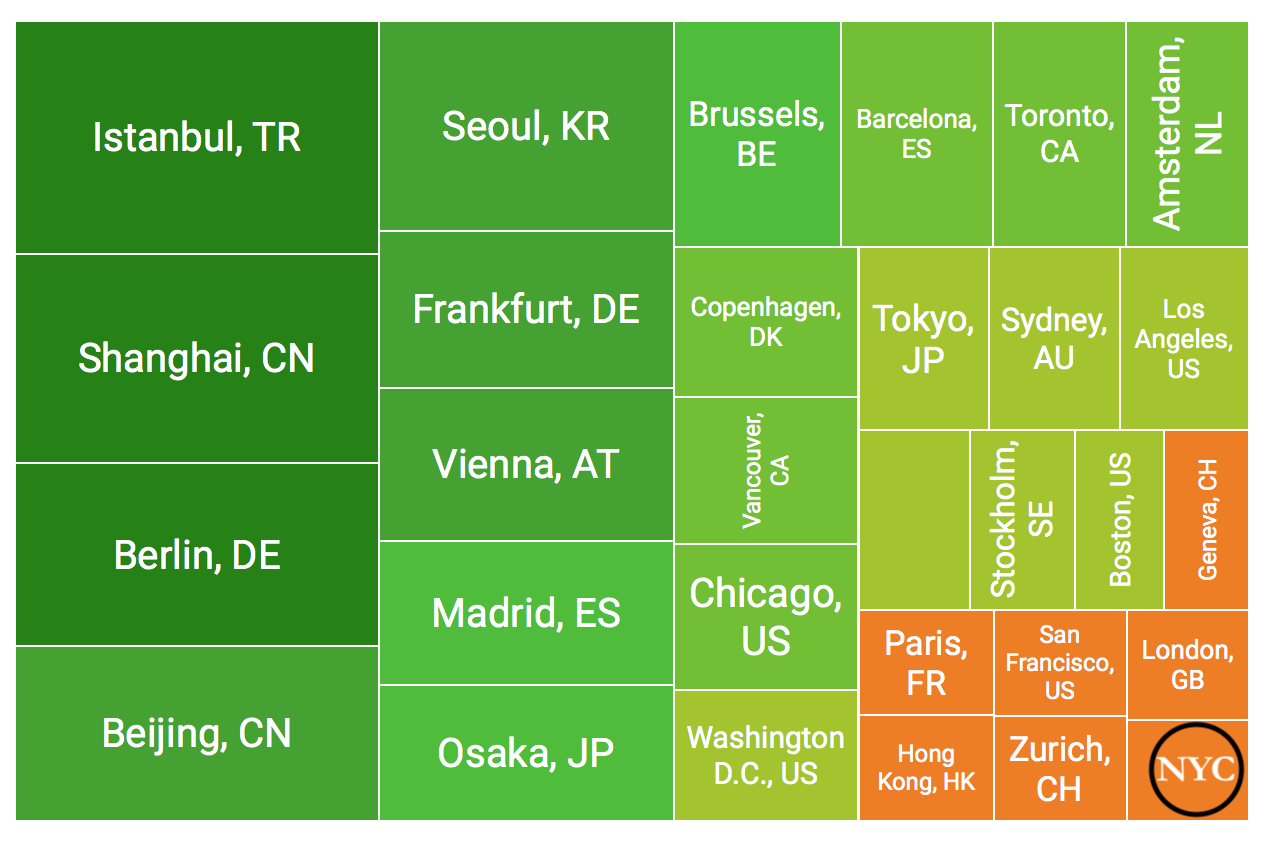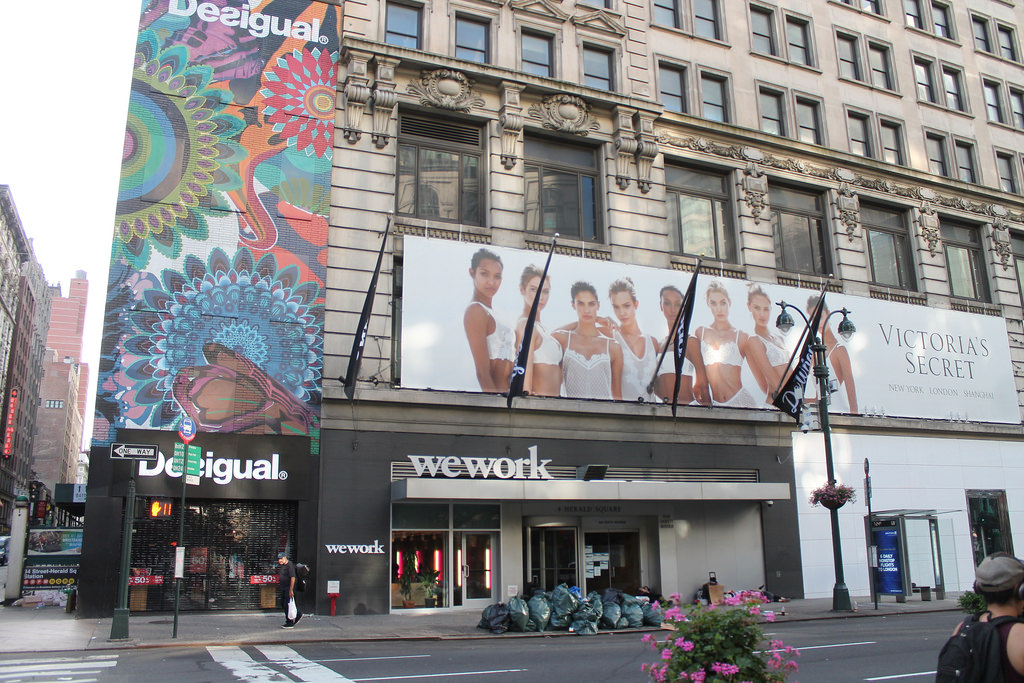Imagine for a moment that you take that idea that you have for a product or a service that nobody seems to have ever thought of, and you apply yourself to the maximum of your capability to make it happen. General searches and conversation will indeed put one of the following two statements in your mind: “I should move to Silicon Valley, the cradle of the tech startup revolution”, or “I should move to Boston, in the heart of medical and scientific innovation”. Although both are technically correct, New York City should not be cast aside so lightly. In recent years the innovation ecosystem, particularly surrounding Tech, has been rising dramatically in the city. Regardless of these rising values, there will often be several instinctive and/or widely spread “facts” which may hinder your ambitions, but it turns out that many of these “facts” are not as true as they may initially appear.
For example, the first hindrance could seem obvious to most people who are connected to the city in some way or other, “there isn’t any space, and when there is, the rent is just too expensive for an early stage startup to be able to afford it”. This is both true and false for various reasons. Rent is expensive, that is an iron-clad truth, the average price per square meter rivals that of other real estate outliers – including San Francisco and London to name a few. That being said, the average price could be skewed by the incredibly high prices of what could be considered the “prime” spots in Manhattan – such as different spaces in Midtown and Financial District (FiDi to its friends), that pride themselves on bleeding their renters near dry. In fact, as if out of necessity, in recent years many alternatives to traditional workspaces have appeared to allow a cost-efficient workspace for small and medium enterprises (SMEs). These include spaces like WeWork, Cornell’s Tata Innovation Center, and the Brooklyn Navy Yard – which will provide various options ranging from private to shared working space; from a fully equipped office to a single desk; all over the city (extending into Brooklyn and Queens) and all for an affordable price.

A valid concern, the matter of space and rent is nevertheless one of the many barriers that has, over the recent years, become relatively affordable to overcome. Inspired with a sort of poetic justice, that which has reduced this obstacle is innovation in and of itself. Specifically, innovation in the form of a disruption of the office real estate market that was championed by several startups, such as the Cambridge Innovation Center (CIC) and NYC’s very own WeWork – founded in SoHo, currently valued at roughly 20 billion dollars, and active in 77 cities across 23 countries worldwide. There are many obstacles to putting together a successful startup; so many that almost 90% of them fail and fail early, but it is with stories like these that we can be optimistic about the future of innovation – because where there is a community that involves itself with the drive and dedication of New York, startups will find ways to profit by enhancing the growth of others, and the ecosystem as a whole. A form of disruption that promotes and paves the way for the disruption of others in their own respective industries – brilliant.

The issue of space and rent does become a more pressing concern when your hypothetical company surpasses the early-stage phase and begins to grow. First of all, congratulations, and second of all, this leads us to another issue surrounding the fact that “startups are going to move away from New York for cheaper and better options”. Once your company has grown to require several square meters of space and numerous employees, it is not egregious to think that a company would move to a more affordable space. What makes this point null in a way is the fact that all companies, large and small, wish to have a presence in NYC. The ideal for a startup or a growing SME would be to have a base of operations in a more cost-effective area, with headquarters in the City itself. Networking is vital for innovation, and few places in the world provide the networking opportunities that NYC does. Not to mention the fact that the city has $704 billion of gross product and 3.7 million private sector jobs all concentrated in this peninsula. Multinational companies and established businesses these days eat sleep and dream innovation and startups and you, well you need funds. Giants need technology, you need funds – both of those things, as well as the means to obtain them, are packed as tightly as can be in this city. So yes, maybe eventually you’ll have to move your operations, but the fact remains that its best to begin in an environment where you have access to valuable resources.
The last and perhaps most technical misunderstanding in this sector surrounds New York State regulations and taxes that are applicable in the industry. A complex sector of the world of innovation, both factors are (however necessary they may be from a societal point of view) a hindrance to any fast-moving and cost-efficient project. Tech innovation intrinsically suffers somewhat less than others, such as biotechnology for example, when it comes to regulation – but the prospect of bureaucratic red tape, increased expenses, and potential rejection are not thrilling for a growing company. Much like the rent/space issue, regulation doesn’t applicably come into play until your product is ready to approach the market, ready for launch, or already in a profitable position. Regulation will only come into play until a company grows to a certain size, or sells a certain quantity of products. As far as NY State Taxes, the situation is identical. NY’s tax breakdown is fairly vicious in comparison to others but they aren’t necessarily inhibitors to growth. There are few corporate tax liabilities, and growing projects have the ability to tap into state incentives as resources that can actually support their growth. Those who truly suffer the burden of taxation will be the more mature, later-stage, companies and high earning individuals.
So, what does this all mean for this company that you’ve set out to build from the ground up?
Well, New York City is a good place to start: you’re in the proverbial “thick of it” with plenty of opportunities for networking, valuable resources all round, alternative workspaces and settings, and even some government incentives. The problems that you’ve been warned about aren’t things that are going to be tripping you up right out the gates. These challenges will rather become more and more of an inconvenience when your company has, against all odds, grown exponentially and you’re making a lot of money. With that in mind, they might not be the worst problems to have, after all.










